Our services
Each Nemo Clinical Center offers the necessary services to ensure a takeover that’s continuous and consistent with the personalized rehabilitation project of each patient.
Healthcare
In NeMO clinical centers there are several clinical and care services, all affiliated with the National Health System, without any burden on patients and their families.
Outpatient visits
For the diagnosis and the definition of the personalized treatment path
Hospitalization
For the evaluation and monitoring of the clinical picture of the patient and for intensive rehabilitation
Day Hospital
For the monitoring of treatments and the review of the rehabilitation path.
MAC
(Macro Complex Outpatient Activities – Milan and Brescia headquarters) as accredited specialist clinics for a multidisciplinary assessment:
- MAC 06 and 07, evaluation for rehabilitation purposes, such as functional, respiratory, psychological, logopedic and neuromotor evaluations.
- MAC 08, prosthetics, involving at least the physiatrist, physiotherapist, occupational therapist and TNPEE. Nutritional in which are involved at least otolaryngologist, speech therapist and nutritionist.
- MAC 10, therapeutic, such as administration of new drugs.
- MAC 11, diagnostics, such as spinal tap, EMG/PEM.
The care model
In NeMO Clinical Center research becomes cure. The person is the center of everything, not their pathology.
The care model
The patient is the center
The person is in the center. Each step of the takeover process is shared with the patient, weighted and structured on the personal and clinical history of each.
The approach is multidisciplinary
The approach is multidisciplinary. The continuous collaboration between the different specialists and the operators allows a 360° takeover along all the stages of the disease, following the best standards of treatment recognized at national and international level.
Care is accessible
For us, dignity and good quality of life are everybody’s right: that’s why our goal is to guarantee free access to care in a context close to the life of the patients.
This means our services are accredited with the National Health System, services such as inpatient ordinary, high-complexity hospitalization, day hospital, ambulatories and MAC.
- the care model
The areas of takeover
Click on each area to learn more
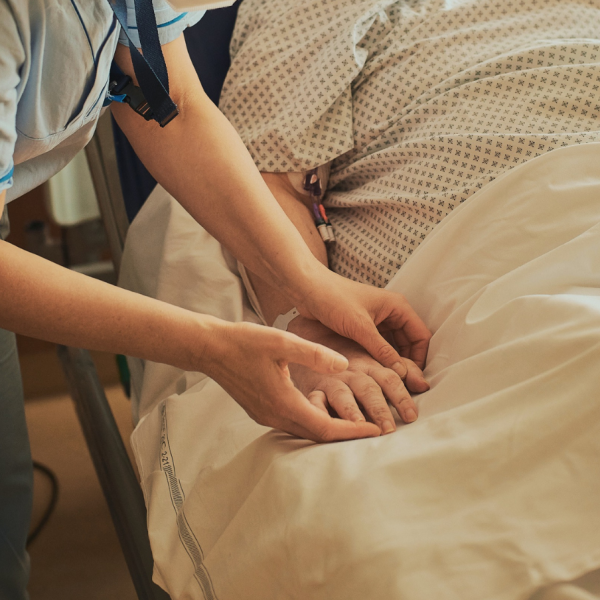
MOVEMENT
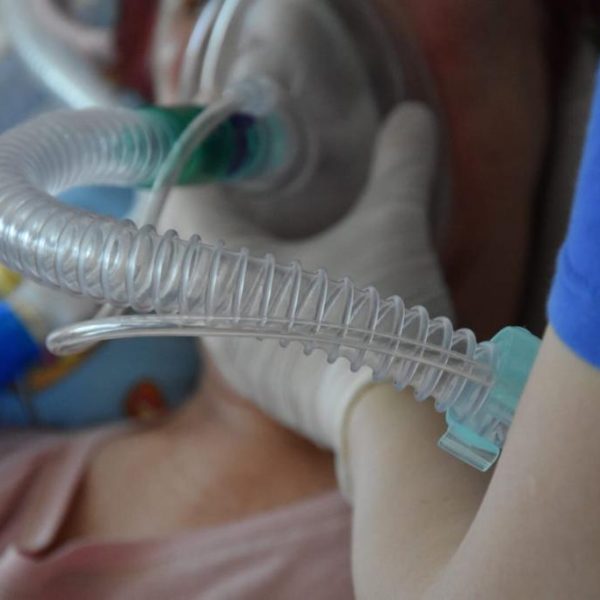
BREATHING
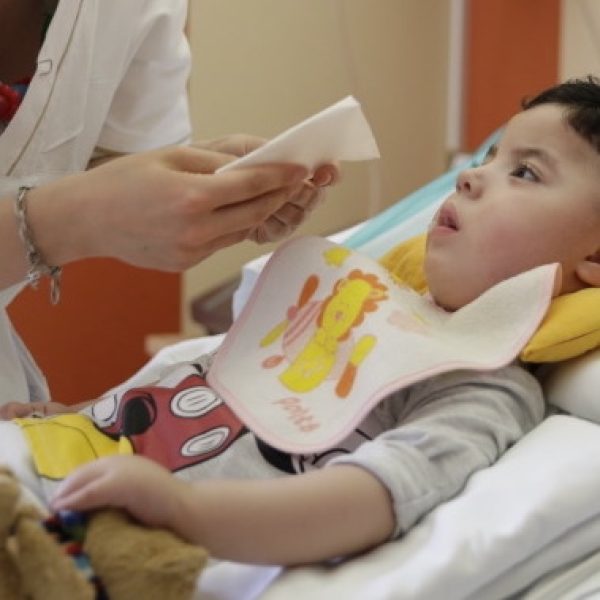
NUTRITION
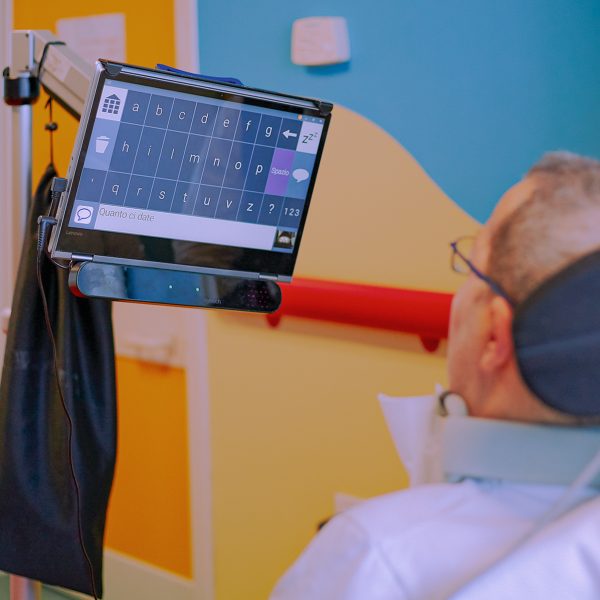
COMMUNICATION
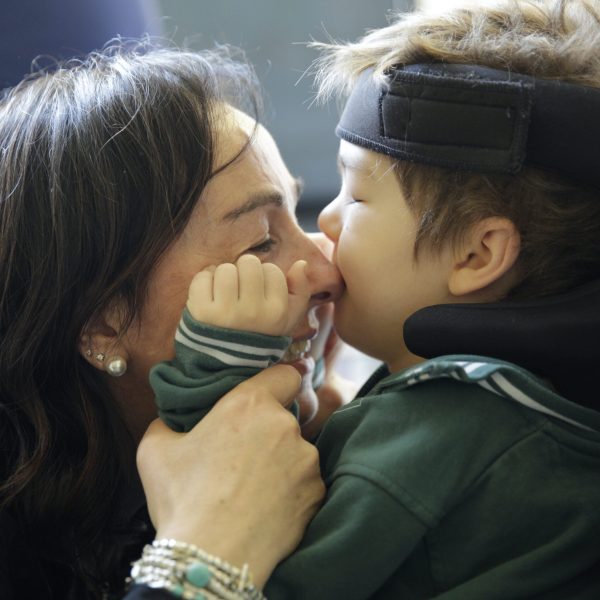
SELF CARE
Movement area
Neuromuscular diseases affect different muscle groups that can be crucial for vital functions such as swallowing, phonation and breathing. To maintain as long as possible the autonomy of the person is essential to make targeted rehabilitation interventions.
That is why, after a first physical or neurological examination, we carefully define the personalized rehabilitation program: based on the diagnosis and indications of the doctor, the team intervenes to provide the patient with all the necessary care to recover or maintain personal autonomy.
The professionals of the movement
Motor physiotherapist (adult and pediatric)
Deals with the functional rehabilitation of motor and psychomotor disabilities through physical, manual, massage and instrumental therapies.
Informs the patient about orthoses and aids and checks their effectiveness.
Monitors the rehabilitation method put into practice to achieve functional recovery goals.
Developmental neuro-psychomotor therapist (pediatric age)
Manages motor functional evaluations and neuromotor rehabilitation.
Supports and informs the child and caregivers about the use of specific walking aids.
Informs and teaches caregivers how to deal with the management of daily activities and rehabilitation needs.
Constantly monitors the patient’s response to treatments and their general mobility conditions.
Occupational therapist (adult and pediatric age)
Manages motor functional evaluations and neuromotor rehabilitation.
Helps the patient acquire skills and strategies to maximize personal functionality in daily life.
Identifies and evaluates the proper use of aids for the safe management of everyday life at home.
Assess the postural needs and what aids and orthoses to provide the patient, if they need it.
Coordinates with agencies that provide aids and prostheses.
Breathing area
The progressive weakening of the respiratory musculature can lead to a reduced ability to ventilate: the oxygen levels in the blood decrease and the values of carbon dioxide, toxic for the human being, rise. This process can have serious consequences on all organs, especially on the heart and the brain.
To avoid this, it is necessary to use dedicated devices for non-invasive mechanical ventilation. That’s why, after a detailed clinical evaluation, we define a personalized plan, referring to the rehabilitation project of the patient.
The professionals of breathing
Respiratory physiotherapist (adult and pediatric)
Performs respiratory function tests.
Adapts and evaluate Non-invasive Ventilation (NIV) or Invasive Ventilation (IMV) in collaboration with the pneumologist.
Proposes alternative or additional ventilation modes to those set.
Takes care of patients with tracheostomy.
Determines which devices to administer and educates the patient and caregivers to use.
Coordinates with the Homecare Providers assigned to the patient to provide the necessary respiratory devices.
Nutrition area
To avoid such problems, a highly specialized rehabilitation, education and assistance intervention is essential. That’s why the specialized team collaborates for timely management by carrying out a personalized rehabilitation project to prevent complications caused by the disease, to maintain or achieve a good nutritional status and to allow the patient to eat safely.
The team takes care of the patient, accompanying them in the change of their eating habits and supporting them from a clinical, nutritional and functional point of view.
The professionals of nutrition
Speech therapist (adult and pediatric)
Determines which screening tools or evaluation protocols to administer.
Runs observation and meal training.
Deals with the study of swallowing.
Proposes enabler and rehabilitative therapies and defines compensatory strategies.
Performs counseling activities for the patient and caregivers.
Monitors treatment response and nutritional status conditions.
Dietician (adult and pediatric)
Administers nutritional screening tests and performs instrumental examinations.
Assess nutritional status and develops personalized diets prescribed by the nutritionist doctor.
Deals with educational activities to inform about the principles of proper nutrition.
Offers advice on specific nutritional problems.
Communication area
The evolution of neuromuscular diseases can lead to a progressive impairment of the functions related to the ability to communicate autonomously, with a significant impact on the psycho-physical and socio-affective context of the person.
That’s why we help patients cope with the difficulties related to communication and speech alteration, by intervening with specific assessments and aids.
The professionals of communication
Developmental neuropsychomotor therapist
Assesses the communication and the compensatory and enabling tools.
Manages the coordination and formation of the rehabilitation and educational network of the child and the family.
Deals with projects of Alternative Augmentative Communication (CAA) to respond to the complex communicative needs of the child.
Optician-optometrist (adult age)
Evaluates the patient’s visual function.
Evaluates refractive state and eye motility.
Prescribes glasses adapted to the daily habits of the patient.
Occupational therapist (adult and pediatric age)
Evaluates the communication management and any related needs (proximal and distal communication, emergency call).
Locates or modifies compensatory aids.
Deals with projects of Alternative Augmentative Communication (CAA) to respond to the complex communicative needs of the patient.
Speech therapist (adult and pediatric)
Evaluates and takes care of the alterations related to phonation and speech articulation.
Self care area
At NeMO Clinical Center we take care of our patients from every point of view, including psychological and social ones. We take care of the patient and we are at his side in every phase of the disease, according to the emotional, personal, family and social needs of everyone.
However, attention is not limited to patients: parents, caregivers and family members are also involved in training and support activities, to deal with the disease knowing they are never alone.
Care professionals
Nurse coach (adult and pediatric age)
- Nurse Coach is a specialist nurse with clinical care, training and managerial skills. The nurse coach plays an important role in taking care of the patient throughout his path of care, from the reception in the ward to the return home.
- Assess the health and psychosocial needs of the patient and their family.
- Supports the patient and the family in identifying the place of continuation of care and activating any services at home.
- Manages contacts with the General Practitioner or Pediatrician and with the patient’s territorial network (services, school).
- Supports the patient and the family in the management of specific practices (requests for financial bonuses, disability questions, etc.).
- Teaches caregivers and family members how to use devices and aids (PEG, Invasive Ventilation, etc.).
- Manages the prescriptions and the monitoring of the clinical-care situation in the months after discharge as well.
- Deals with the continuity of care at a distance in case of need through a phone number and a dedicated e-mail address.
- Manages contacts and works with local authorities, schools, teachers and educators in the case of pediatric patients.
Psychologist (adult and pediatric age)
- Carries out clinical interviews of psychological support with the patient, caregivers and family members.
- Performs neuropsychological evaluations and cognitive rehabilitation activities.
- Deals with psychodiagnostic and in-depth assessments.
- Holds talks in collaboration with the multidisciplinary team (genetic counselling, clinical-care choices, end-of-life choices, etc.).
- Conducts interviews with teachers and local operators of children’s patients (social workers, educators, support teachers, personal assistants).
- Draws up functional diagnostic documents for the integration of the child in school.
- Deals with the training for students of Psychology or graduate schools who apply for an internship at the Centre.
Need support or information?
Fill out the form, we are at your disposal to answer your questions.
- support us
Give assistance, support and care to those who experience a neuromuscular pathology
Thanks to your help, we can continue to take care of those in need.